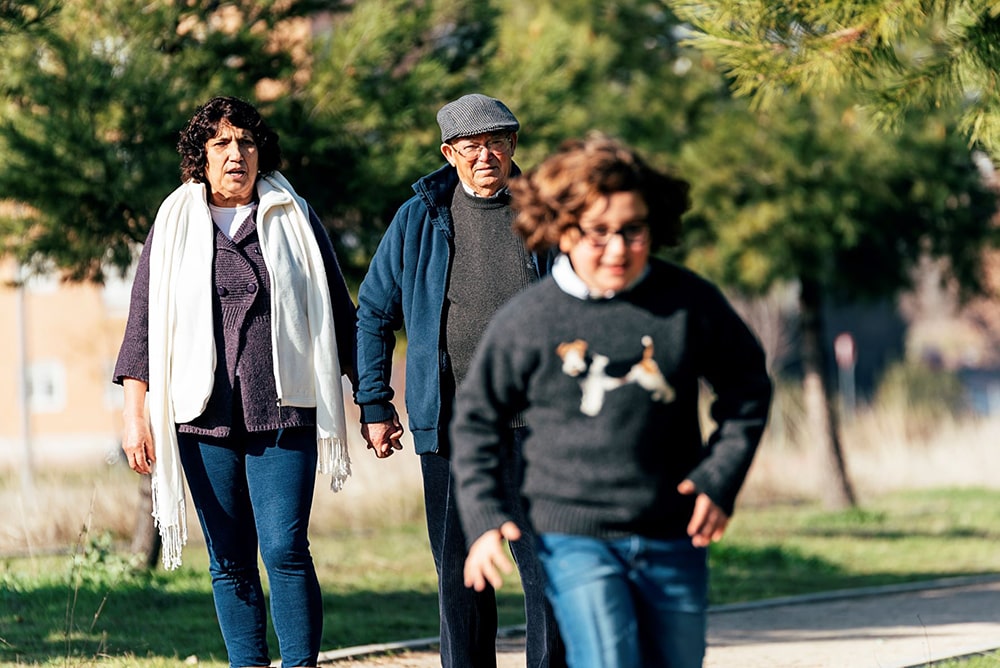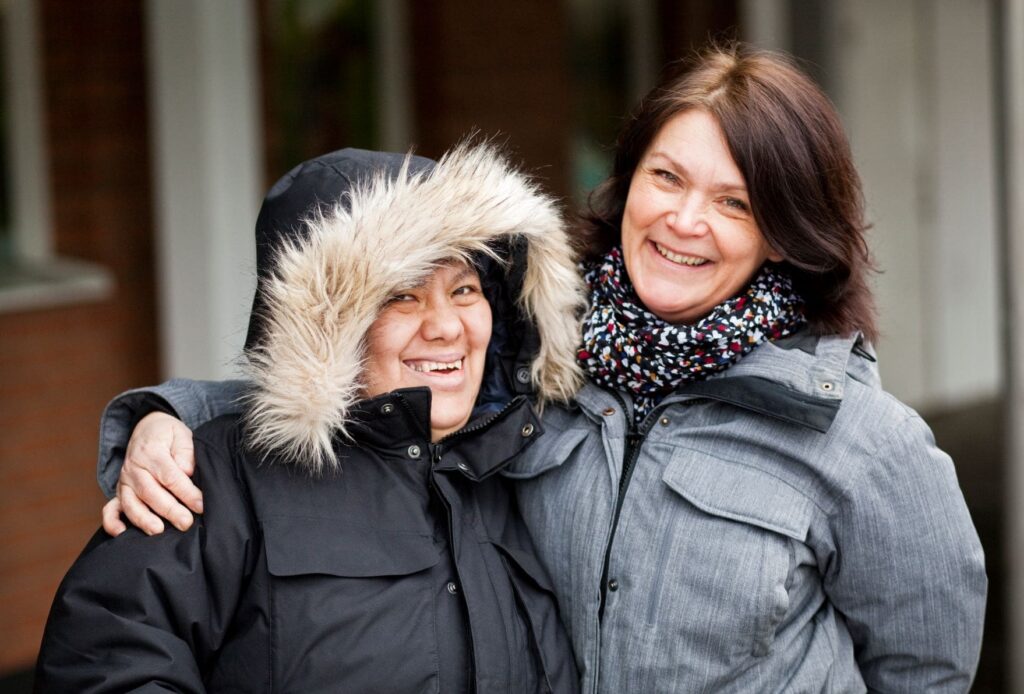Behaviour Support
As a registered NDIS provider, our behaviour support service is all about understanding why you or a loved one might use behaviours of concern, and what can be done to build capacity in a safe, enjoyable environment.

Our Personalised Behavioural Support for Improved Communication and Wellbeing
Once we have an idea of communication and behaviour, we then typically conduct an assessment on the person’s environment (i.e. where they live, where/if they work) to determine if this meets their everyday needs and wants, and how this could be influencing their communication or behaviour.
Get help managing your emotions, so you can overcome anything life throws at you. After the initial meeting and assessment has taken place, we then move to implement a positive behaviour support plan or skill development plan to ensure the person has a clear road map towards further building confidence, capacity and general well being. Most importantly, we will work with you to come up with a plan to improve the quality of your life. At the end of the day, that’s what’s most important to us.
As outlined by the NQSC, Positive Behaviour Support (PBS) is a person centred intervention to address the underlying causes of ‘behaviours of concern’, while safeguarding the dignity and quality of life of people with a disability who require specialist behaviour support. Behaviour support is about creating individualised strategies for people with disability that are responsive to the person’s needs, in a way that reduces the occurrence and impact of behaviours of concern.
Behaviour support is about creating individualised strategies for people with disabilities that are responsive to the person’s needs, in a way that reduces the occurrence and impact of behaviours of concern. Our friendly and highly qualified Behaviour Support Practitioners are all registered with the Commission, ensuring a high standard of care and ongoing professional development.
Behaviour Support is both the same for everyone but also different for everyone.
Comprehensive Assessment and Personalised Support for Behavioural Improvement
We will work through an initial assessment with you and those close to you to get an understanding of the behaviours which concern you or others. This might involve speaking to other people who are on your team, like therapists, teachers, carers and doctors. After this, we will develop a ‘Behaviour Support Plan’, with your input, to make sure you are well supported and that everyone is supporting you safely and consistently.
After this initial plan, we will complete a ‘Functional Behaviour Assessment’ that aims to go beyond the ‘what’ of the behaviour to the ‘why’ of the behaviour. We want to help you and those who support you to understand your unmet or misunderstood needs and wants. When we know why the behaviour happens, we will update the plan with you to make sure it includes strategies for yourself and those around to meet your needs more safely and more effectively. Most importantly, we will work with you to come up with a plan to improve the quality of your life. At the end of the day, that’s what’s most important to us.


What is Behaviour Support?
A Behaviour Support Practitioner is an appropriately skilled and qualified professional assessed against the Positive Behaviour Support Capability Framework, and may come a range of disciplines including Social Work, Psychology, Counselling, and other recognised professional disciplines. All our all Behaviour Support Practitioners are registered with the NDIS Quality and Safeguards Commission to provide Specialist Behaviour Support.
AYS focuses on person-centred interventions to address the underlying causes of behaviours of concern or challenging behaviours, while safeguarding the dignity and quality of life of people with disability who require specialist behaviour support.
Why should I choose AYS Behaviour Support?
- We will work hard to get to know you and your situation
- We will work with you to understand why you, or your loved one, may do things that put you, them, or anyone else at risk.
- We will develop a plan to improve the quality of your life.
- We will work with you to come up with a plan to get to the bottom of these behaviours and bring them down over time by replacing them with more helpful behaviours, new skills, and stronger supports.

Are you having difficulty with challenging behaviours?
We all behave in ways that, at times, don’t really help us in the long run – or even the short run.
Some of us, though, have more difficulty with our behaviours than others. This may be you, or someone you live with. We behave in ways that are not just unhelpful – they put us or others at risk of harm, or even exclusion from the community.
Physical violence. Self-harm. Stealing. Constant lying. Breaking stuff. Angry outbursts and meltdowns. Verbal abuse. Intimidation. Substance abuse. The list goes on.
Worst of all, we often don’t really know why we do these things. You know you get angry. You know you get upset. You know the things you do seem to work for you in the moment, but not for others – and that, in the long run, they don’t work for you either.
Well, our team of Behaviour Support Practitioners are here to help.

Role of AYS in Developing Behaviour Support Plans
The Positive Behaviour Support Team works with individuals, families and care teams to support individuals who use behaviours that involve risk to the person or those around them. Positive Behaviour Support is based on the understanding that behaviours of concern occur because there is something in the person’s life that is not going well, or they have needs that are not being supported. We take a person-centred approach and develop a deep understanding of the person and their strengths, vulnerabilities, values and goals that enables the development of a Positive Behaviour Support Plan with proactive strategies that seek to meet the person’s needs and reduce their use of behaviours of concern.
Sometimes formal restrictive practices are required to keep people safe while we work towards addressing underlying problems. Restrictive practices include chemical, physical, environmental, or mechanical restraints, as well as seclusion. Restrictive practices must be included with a Positive Behaviour Support Plan and Authorised by the NDIS Commission, with formal reporting mechanisms. Restrictive practices impact a person’s quality of life, involve risks to the person and impact their rights. We take our role of protecting the human rights of our participants seriously. Our BSP team works closely with individuals, families and other support services to develop ways to fade out restrictive practices and ensure that they are the least restrictive options available to keep everyone safe.
The AYS Positive Behaviour Support Team is committed to reducing restrictive practices and building proactive strategies that are effective and mean that restrictive practices are not required.
Role of AYS in Implementing Restrictive Practices - Zero Tolerance to Restrictive Practices
AYS has zero tolerance for abuse, which includes using restrictive practices in the direct support of AYS participants in our care. During direct support service delivery an AYS team member is not to use any form of restrictive practice or facilitate the use of a restrictive practice on the request of another party or if outlined in an approved Behaviour Support Plan.
AYS is not an Implementing Provider, therefore, cannot use authorised restrictive practices in the delivery of support services.
An unplanned/unauthorised restrictive practice will only be initiated by AYS staff when a serious incident is imminent and intervention is necessary to prevent serious harm to the participant or others, or to prevent the destruction of property where there is a risk of harm to the participant or others.
AYS team members are required to report all incidents where an Unplanned/Non-Approved Restrictive Practice is used.